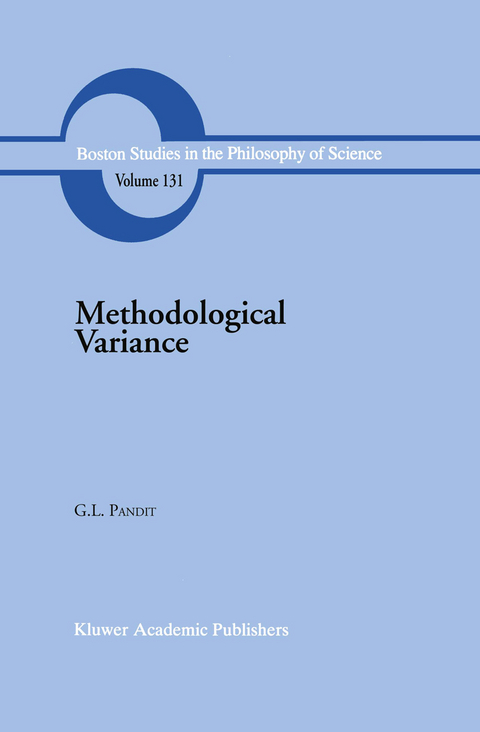
Methodological Variance
Essays in Epistemological Ontology and the Methodology of Science
Seiten
1991
Springer (Verlag)
978-0-7923-1263-5 (ISBN)
Springer (Verlag)
978-0-7923-1263-5 (ISBN)
For a philosopher with an abiding interest in the nature of objective knowledge systems in science, what could be more important than trying to think in terms of those very subjects of such knowledge to which men like Galileo, Newton, Max Planck, Einstein and others devoted their entire lifetimes? In certain respects, these systems and their structures may not be beyond the grasp of a linguistic conception of science, and scientific change, which men of science and philosophy have advocated in various forms in recent times. But certainly it is wrong-headed to think that one's conception of science can be based on an identification of its theories with languages in which they may be, my own alternatively, framed. There may be more than one place in book (1983: 87) where they may seem to get confused with each other, quite against my original intentiens. The distinction between the objec tive knowledge systems in science and the dynamic frameworks of the languages of the special individual sciences, in which their growth can be embedded in significant ways, assumes here, therefore, much impor tance. It must be recognized that the problems concerning scientific change, which these systems undergo, are not just problems concerning language change.
One.- 1 / On the Objects of Our Subjective Knowledge.- 2 / Human Knowledge and Human Interaction.- 3 / Indeterminacy of Translation: A Non-Quinean Function of Content-Indeterminacy.- 4 / On the Impossibility of any Enterprise Concerning Self-Knowledge within Traditional Epistemology.- Two.- 5 / Methodological Essentialism in Science and in Philosophy.- 6 / Of Variance and Invariance in Science: Empirical Science as an Enterprise ComprisingNFCPSSystems.- 7 / Falsifiability and Methodological Invariance in Science.- 8 / The Methodology of Theory-Problem Interactive Systems.- 9 / The Resolving Power of a Scientific Theory as a Basis of its Epistemic Appraisal.- 10 / Epilogue.- Notes.- Index of Symbols.- Index of Names.- Index of Subjects.
| Erscheint lt. Verlag | 31.10.1991 |
|---|---|
| Reihe/Serie | Boston Studies in the Philosophy of Science ; 131 |
| Zusatzinfo | XXIV, 431 p. |
| Verlagsort | Dordrecht |
| Sprache | englisch |
| Maße | 155 x 235 mm |
| Themenwelt | Geisteswissenschaften ► Philosophie ► Allgemeines / Lexika |
| Geisteswissenschaften ► Philosophie ► Erkenntnistheorie / Wissenschaftstheorie | |
| Geisteswissenschaften ► Philosophie ► Sprachphilosophie | |
| Naturwissenschaften | |
| ISBN-10 | 0-7923-1263-5 / 0792312635 |
| ISBN-13 | 978-0-7923-1263-5 / 9780792312635 |
| Zustand | Neuware |
| Haben Sie eine Frage zum Produkt? |
Mehr entdecken
aus dem Bereich
aus dem Bereich
die letzten Jahre der Philosophie und der Beginn einer neuen …
Buch | Hardcover (2024)
Klett-Cotta (Verlag)
CHF 39,20
Gesundheitsschutz, Selbstbestimmungsrechte, Rechtspolitik
Buch | Softcover (2024)
Kohlhammer (Verlag)
CHF 54,60
Jenseits von Identität | Ausgezeichnet mit dem Leipziger Buchpreis …
Buch | Softcover (2023)
Ullstein Taschenbuch Verlag
CHF 19,55


